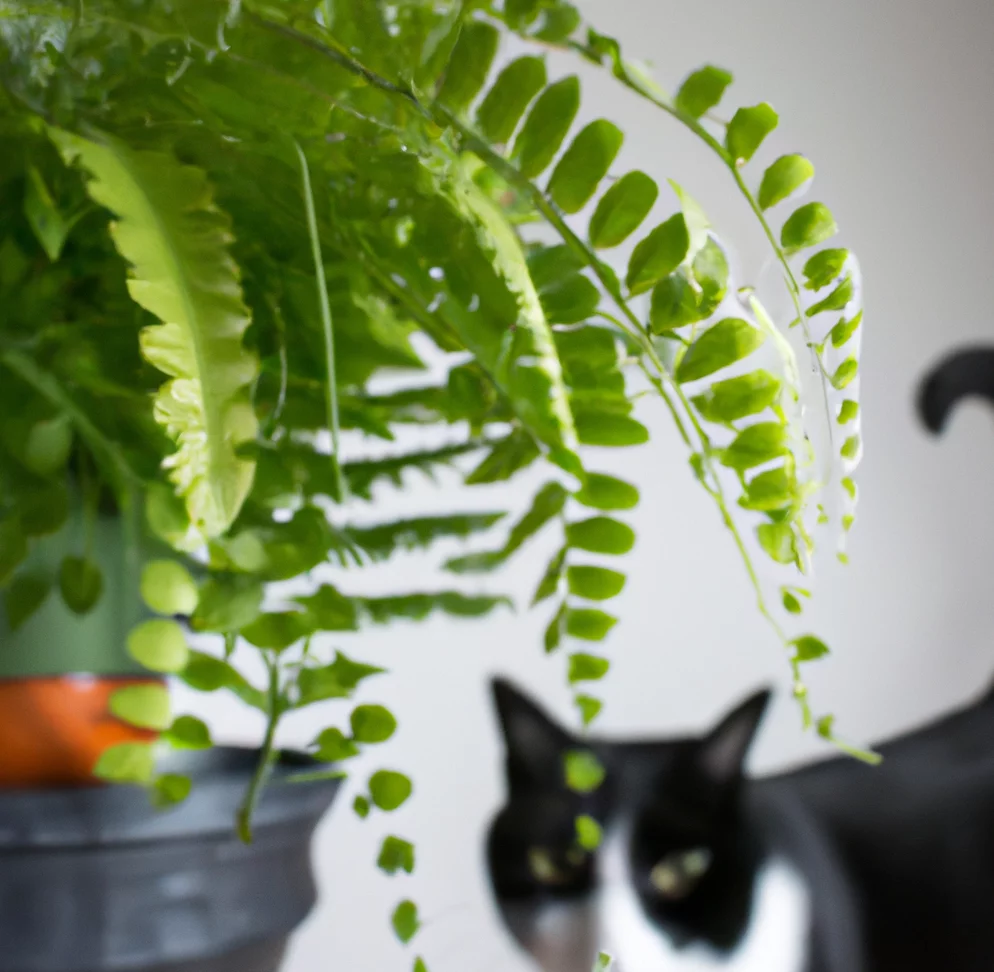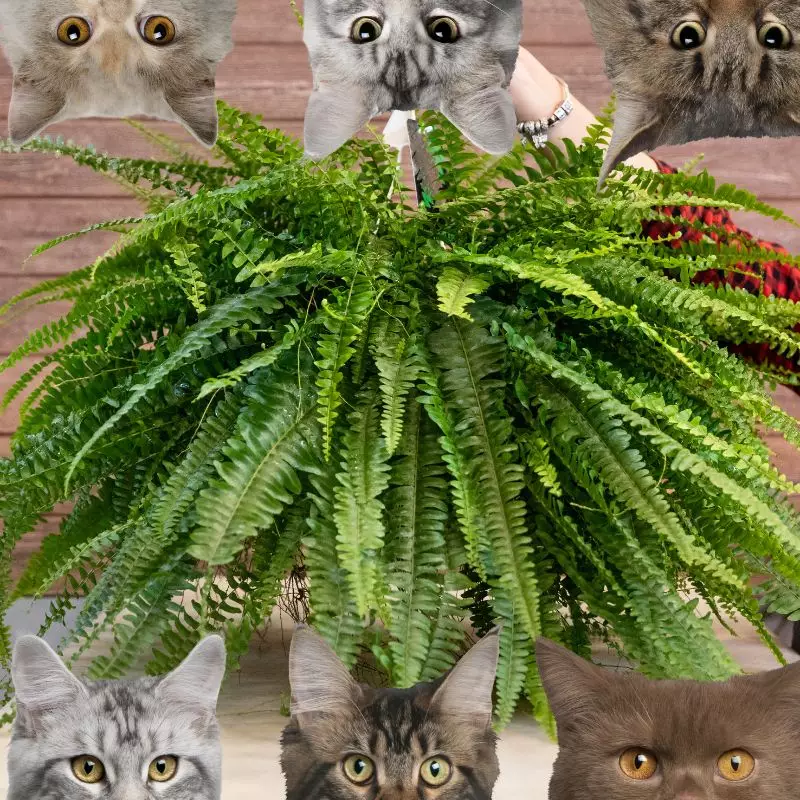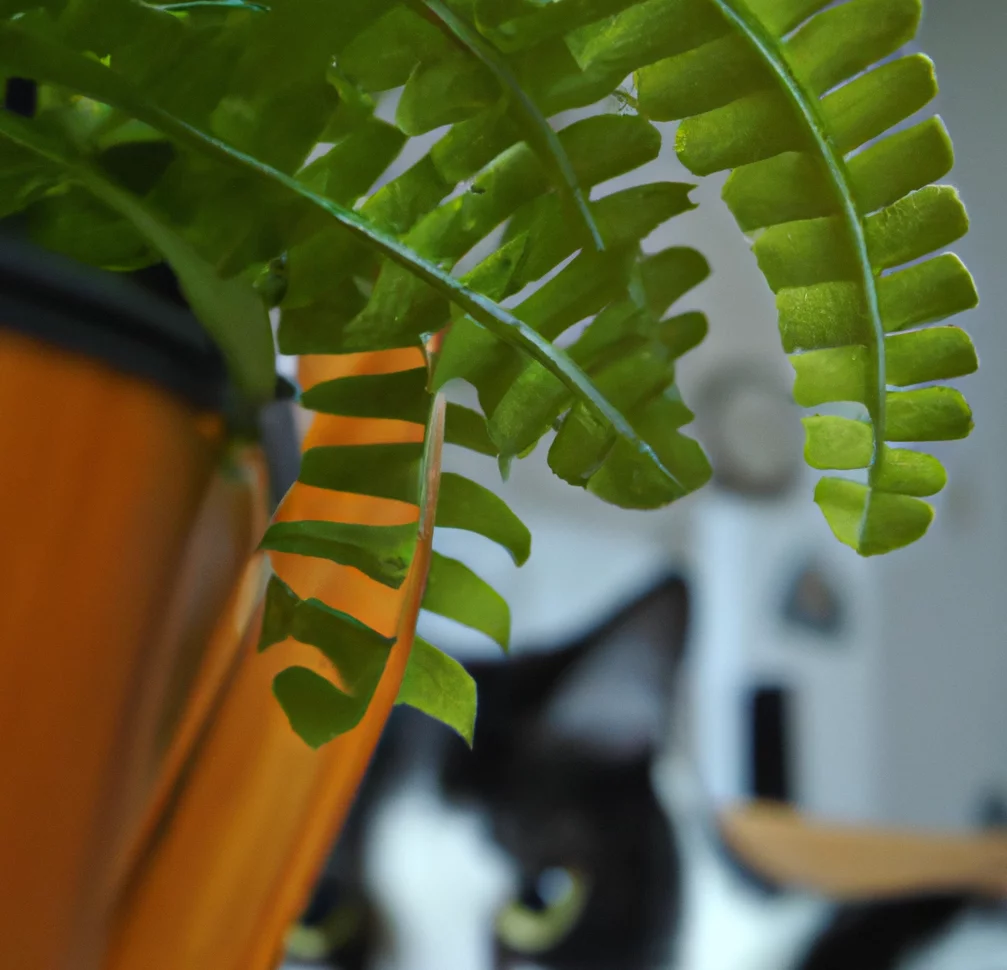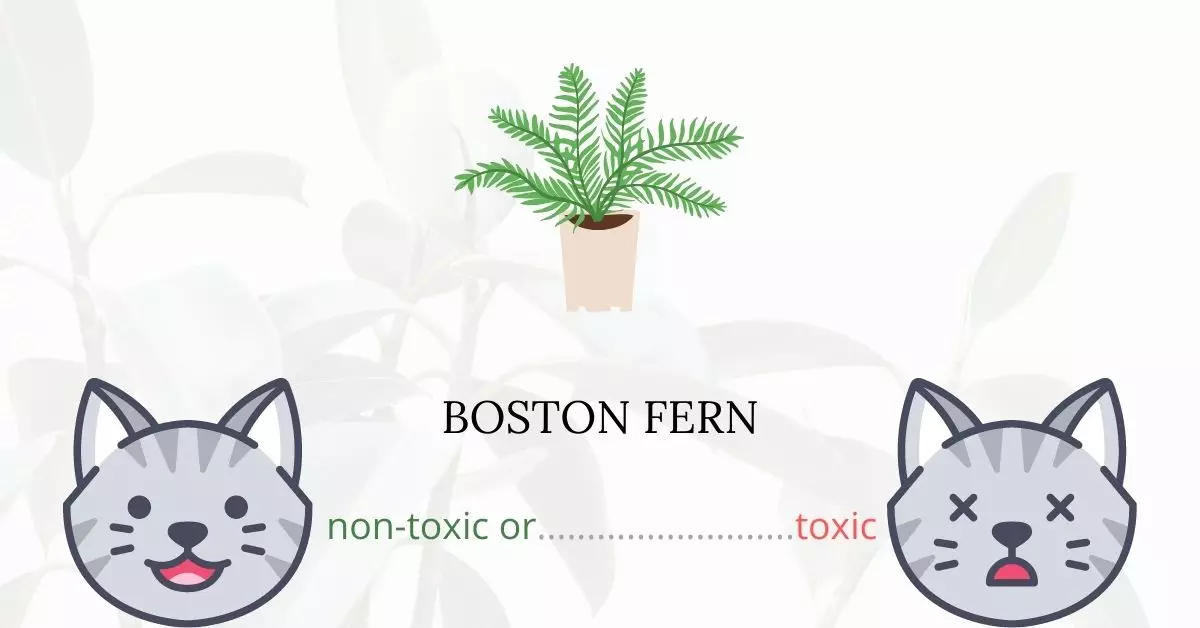Boston ferns pose no toxicity risk to cats, providing peace of mind to owners of feline companions. They are one of the few fern varieties that are recognized as generally safe for felines.
This conclusion comes after extensive collaboration with a team of experienced Doctors of Veterinary Medicine (DVMs), whose valuable insights have enriched this article. Through their contributions, we are able to deliver precise and current information regarding the potential risks Boston Ferns, and other plants, might present to cats. In addition to professional veterinary advice, our assertions are substantiated by high-authority resources such as the ASPCA and PetMD, both of which list the Boston fern as a non-toxic plant, not only for cats but also for dogs.
The lush and appealing foliage of Boston ferns makes them a popular choice for ornamental plants. However, if your cat tends to nibble on houseplants, you might wonder about the safety of having Boston ferns around. Rest assured, even for the most curious of felines, Boston ferns remain a secure choice, allowing your pet to explore their green surroundings without any adverse effects.
Can Cats Eat Boston Fern?

Yes, cats can eat Boston fern. As long as your cat will not consume massive amounts of the plant, then, it is perfectly fine. You do not have to worry in case your cat has licked, nibbled, or ingested a part of Boston fern.
But, an important reminder for cat owners is that plants are not really a good source of food for cats. The main reason for this is that they are carnivores.
Carnivores are meat-eaters and they do not need additional supplements from plants. Their bodies do not have the proper enzymes to completely digest plants. In case a cat eats too many plants, he or she will experience digestive issues which may cause vomiting and diarrhea.
Another thing to think about is the pesticides that may have been put on the plant that your cat ate. It’s probable that the plant was treated with fertilizers and pesticides. If this is the case, your cat might become poisoned as a result of eating a plant that contains hazardous chemical residues.
What is Boston Fern?

Boston fern is an evergreen plant that may reach a height of 40 to 90 centimeters.
This plant is endemic to Florida, South America, Mexico, and Africa, where it thrives in humid woods and marshes. Because of its capacity to survive indoors with minimal maintenance, Boston ferns have been transported to various regions of the world as ornamental indoor plants. Since they are considered a non-toxic plant, it is a popular choice among pet owners.
Boston ferns look lovely in baskets on the porch or along the sidewalk. They do, however, require constant watering for humidity.
It is also a popular houseplant choice because of its ability to remove toxins from the air. Its nearly insatiable thirst for water causes it to pump vast volumes of water vapor into the surrounding air, boosting humidity.
Boston fern is scientifically known as Nephrolepis exaltata Bostoniensis from the Dryopteridaceae plant family. It has large fronds on either side of the midrib with alternating leaflets (pinnae). The light to medium-green fronds can reach a length of 4 feet and a width of 6 inches. Each leaflet has a deltoid form with undulating, somewhat serrate margins.
Keeping Cats Away From Boston Fern

Spraying vinegar on your Boston fern will help to prevent your feline companions from touching or getting near your Boston fern. It is also advisable to put the plant in a safe place that your cat cannot access.
Plants to Avoid For Your Cats
If you are a cat owner and unsure if the plants growing in your yard are harmful to your cats, check out this list of toxic plants for cats. You can also check our list of non-toxic plants for cats.





